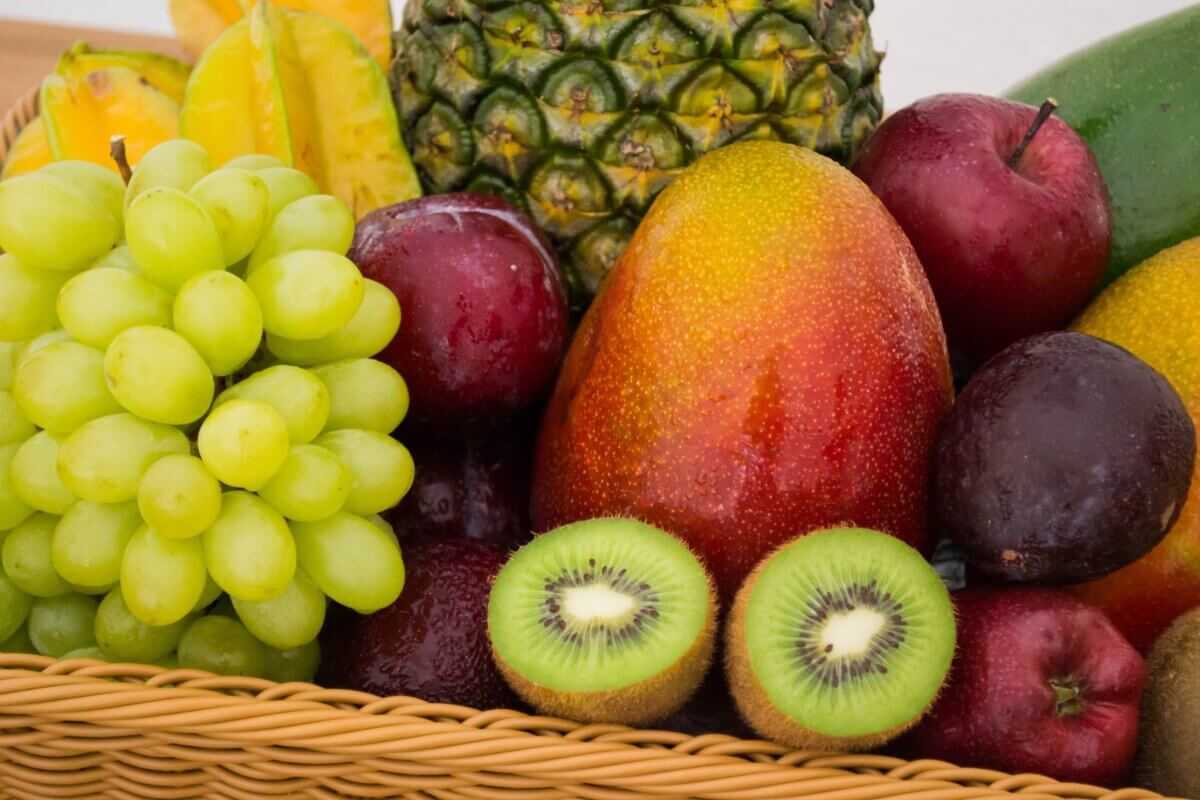You’ve probably heard that sugar is unhealthy. It’s been demonized in health-related media for years. People even go so far as to claim that it’s as addictive as cocaine, but the truth is that the sugar topic is filled with exaggerated takes that end up scaring people away from perfectly nutritious foods — including fruit! Does this sound like you? Let’s break down why sugar in fruit is nothing to fear.
Solely looking at the amount of sugar in a food does not tell you much about how healthy it is. The sugar in fruit is naturally occurring and is not viewed in the same way as added sugar. Refined, added sugars, found most often in ultra-processed baked goods, cereals, and condiments, are more likely to negatively impact your health in excess. The same thing can’t be said about the natural sugars in fruit.
Added sugar has been linked to diabetes, high blood pressure, obesity, and more. The American Heart Association has reported that Americans eat an average of 17 teaspoons of added sugar per day, which is over double the recommended amount.
Is the sugar in fruit unhealthy?
For most people, fruit can be part of a healthy diet. People should not turn away from fruit because of its sugar content, especially since most Americans are not meeting the daily recommended amount of fruits and vegetables in their diet to begin with.
While it’s true that the sugar in fruit can increase blood sugar, most bodies know what to do with that sugar by secreting insulin to bring your blood sugar back to normal. At the same time, overeating any higher-carb foods, including fruit, can impair the body’s ability to effectively do that.
However, what sets fruit apart from ultra-processed food is that fruit contains fiber to help slow the absorption of sugar and stabilize blood sugar. Typically, foods with added sugar contain little to no fiber.
Eating fruit with yogurt or eggs provides additional protein and fat to help further stabilize blood sugar response. Pairing fruit with protein, fat, and additional fiber is something suggested for people with diabetes for this reason. Even so, it’s still okay for most people to eat fruit on its own without worrying about taking in too much sugar for the body to process. Fruit also contains other beneficial vitamins, minerals, and antioxidants to support optimal health.

Who should worry about the sugar in fruit?
People with Type 1 and Type 2 diabetes should always be mindful of the sugar they are consuming, regardless of its source. This is because the body has an impaired ability to process it. For someone without diabetes or insulin resistance, this isn’t really the case.
According to the Centers for Disease Control and Prevention, one in three people in the United States have prediabetes, and over 80 percent don’t even know. More than 37 million Americans actually have diabetes. In light of these statistics, it is important not to discount the importance of being mindful of sugar intake, whether it comes from fruit or elsewhere. Blood sugar regulation is an incredibly prevalent problem in this country, and although it’s generally not fruit sugar that is the cause, it may exacerbate existing problems in some people.
Bottom Line
Fruit sugar is not the enemy and is not to be directly compared to added sugar in highly processed snacks and desserts. While Americans would benefit from eating less added sugar, Americans don’t eat nearly as much fruit as recommended. People with diabetes and insulin resistance should be mindful of any sugar they consume, whether it is from fruit or ultra-processed food. However, fruit can still be mindfully included in the diet of diabetics as well. Fruit contains several health benefits, such as fiber, vitamins, and minerals, which are not usually in ultra-processed, high-sugar foods.
You might also be interested in:
- Best Fruit For Weight Loss: Top 5 Produce Picks, According To Experts
- A Dietitian’s Take: The 4 Best Ways To Crush Sugar Cravings
- Purple fruits and veggies can protect against diabetes, study reveals
- Best Glucometers: Top 5 Blood Sugar Monitors Most Recommended By Experts

